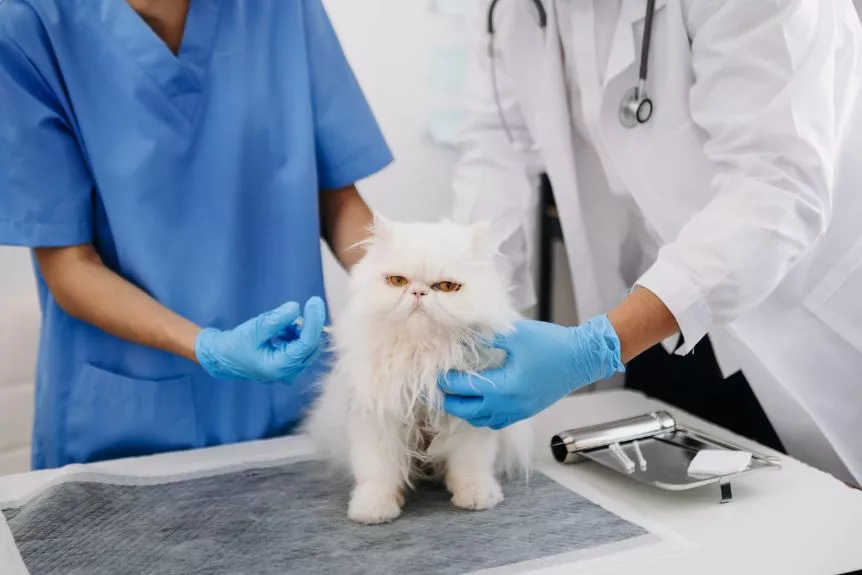
You may be surprised to learn about the prevalent health issues that can affect your feline companion. From urinary tract problems to dental disease, cats can face various health challenges that require attention. Understanding these issues and knowing how to prevent them is crucial for your cat's well-being. By implementing simple yet effective preventive measures, you can significantly improve your cat's quality of life and ensure they stay healthy and happy. So, let's explore the most common health concerns in cats and the steps you can take to safeguard your furry friend's health.
Common Health Issues in Cats
If your feline friend seems listless or exhibits unusual behavior, it may be a sign of common health issues in cats that require prompt attention. One prevalent issue among cats is urinary tract problems, which can lead to discomfort and potential blockages. Symptoms include frequent urination, straining in the litter box, or blood in the urine.
Dental disease is another common concern, with signs like bad breath, drooling, or difficulty eating. Cats are also susceptible to digestive issues such as vomiting, diarrhea, or constipation, which can indicate underlying problems. Moreover, skin conditions like allergies or fleas can cause irritation and distress for your furry companion.
Respiratory infections are common too, often marked by sneezing, coughing, or nasal discharge. Keeping an eye out for these signs and seeking veterinary care promptly can help address these health issues before they escalate, ensuring your cat stays happy and healthy.
Preventive Measures for Cats
To keep your furry friend healthy and happy, implementing preventive measures for cats is key in avoiding common health issues. Regular veterinary check-ups are crucial to catch any potential problems early on.
Vaccinations are essential to protect your cat from serious diseases such as rabies, feline leukemia, and distemper.
Maintaining a clean environment by regularly cleaning your cat's litter box and sleeping areas helps prevent infections and parasites. Providing a balanced diet and ensuring your cat stays at a healthy weight can prevent obesity-related issues like diabetes and joint problems.
Additionally, keeping your cat indoors can reduce the risk of accidents, exposure to toxins, and infectious diseases. Regular exercise and mental stimulation are important for your cat's overall well-being and can prevent behavioral issues.
Dietary Tips for Cat Health
Ensuring your cat receives a balanced diet tailored to their specific nutritional needs is essential for maintaining their overall health and well-being. To achieve this, provide your cat with high-quality cat food that's appropriate for their age, size, and any specific health requirements they may have. Look for cat food that lists a high-quality protein source, such as meat or fish, as the primary ingredient. Avoid feeding your cat excessive amounts of treats or human food, as this can lead to obesity and nutritional imbalances.
It's crucial to provide your cat with access to fresh, clean water at all times to prevent dehydration and promote kidney health. Additionally, consider incorporating wet food into your cat's diet, as it can help increase their water intake and support urinary tract health. Monitor your cat's weight regularly and adjust their food portions as needed to maintain a healthy weight.
Regular Vet Check-ups for Cats
Regular vet check-ups are crucial for maintaining your cat's health and catching any potential issues early on. Just like humans, cats need regular visits to the vet to ensure they're in good health. These check-ups allow the vet to monitor your cat's overall well-being, detect any health concerns, and provide necessary vaccinations.
During a vet check-up, the veterinarian will conduct a thorough physical examination of your cat. They'll check your cat's weight, temperature, heart rate, and overall body condition. The vet may also recommend blood tests or other diagnostic procedures to assess your cat's internal health.
In addition to detecting health issues early, regular vet check-ups can also help prevent future problems. Vaccinations, parasite control, and dental care are essential aspects of your cat's health that can be addressed during these visits.




